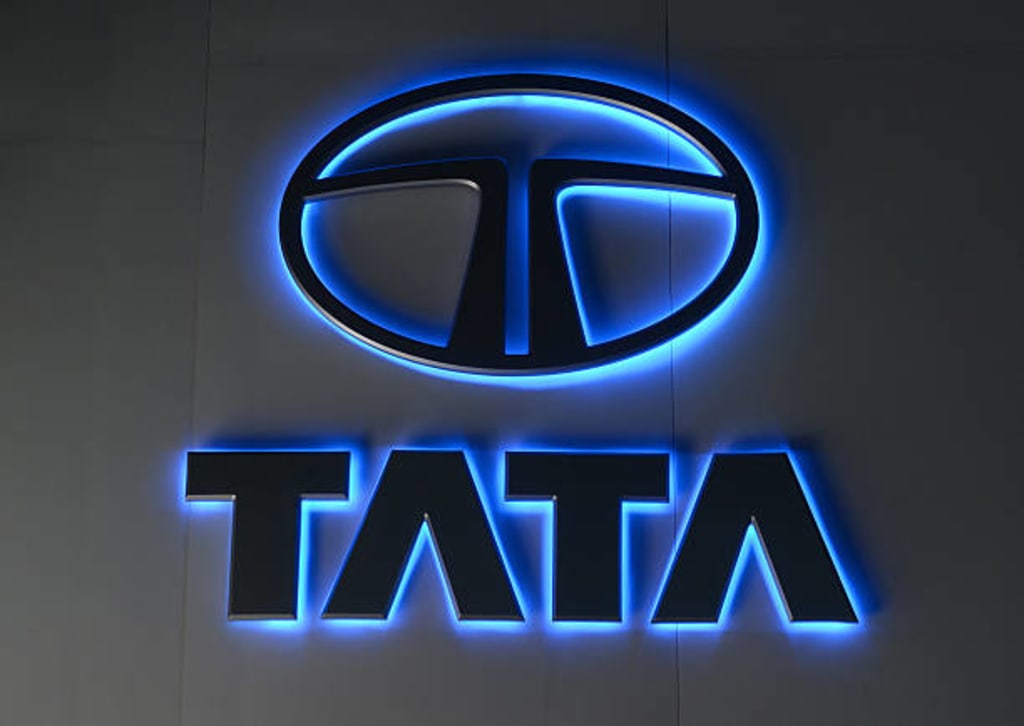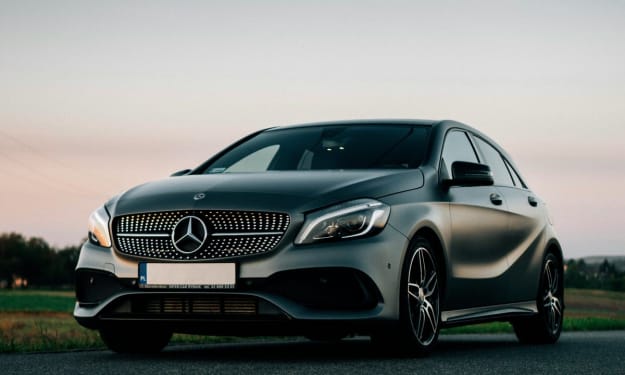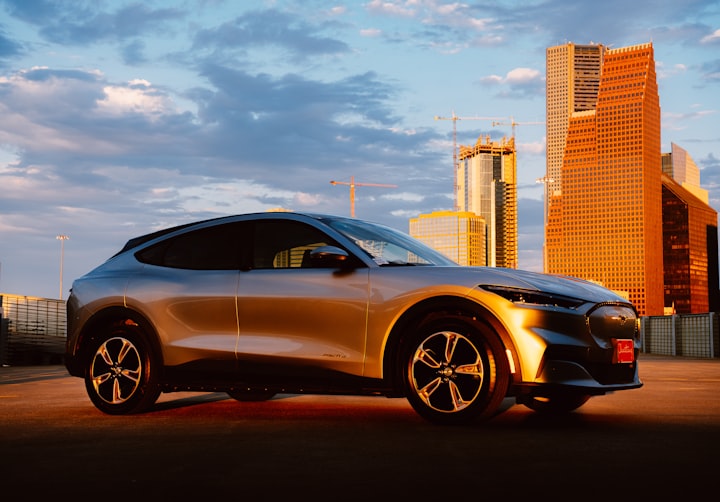India's Auto History: Tata Motors: The story of ups and downs
New Delhi: Tata Motors Limited is an Indian multinational automotive manufacturing company, headquartered in Mumbai, India. It is a leading global automobile manufacturing company. Its diverse portfolio includes an extensive range of cars, sports utility vehicles, trucks, buses, and defense vehicles. Tata Motors is one of India's largest OEMs offering an extensive range of integrated, smart, and e-mobility solutions.

It is a part of the USD110 billion Tata group, founded by Jamsetji Tata in 1868, Tata Motors is among the world’s leading manufacturers of automobiles. The company believes in ‘Connecting aspirations’, by offering innovative mobility solutions that are in line with customers' aspirations. Its India's largest automobile manufacturer which continues to take the lead in shaping the Indian commercial vehicle landscape, with the introduction of leading-edge powertrains and electric solutions packaged for power performances and user comfort at the lowest life-cycle costs.
Formerly known as Tata Engineering and Locomotive Company (TELCO), the company was founded in 1945 as a manufacturer of locomotives. Its first commercial vehicle was manufactured in 1954 in collaboration with Daimler-Benz AG, which ended in 1969. Tata Motors entered the passenger vehicle market in 1988 with the launch of the Tata Mobile followed by the Tata Sierra in 1991, becoming the first Indian manufacturer to achieve the capability of developing a competitive indigenous automobile.
The Failure
Tata launched the Tata Indica in 1998, a fully indigenous Indian passenger car. Although it was initially criticized by auto analysts, its excellent fuel economy, powerful engine, and aggressive marketing strategy made it one of the best-selling cars in the history of the Indian automobile industry. The newer version of the car, named Indica V2, was a major improvement over the previous version and quickly became the mass favorite.
In 1999, the group wanted to sell its fledgling car business to Ford. Ratan Tata, Chairman of Tata Enterprises, along with his team flew to Detroit and met the chairman of Ford, Bill Ford. In the 3 hours meeting, Ratan Tata faced humiliation been said that Tata knew nothing about cars and they should have stayed away from the automotive sector and Ford was doing Tata a favor by buying his cars.
The never-ending success
Post that meeting, Ratan Tata decided not to sell cars and returned to India. He gathered all his focus on Tata Motors and worked even harder. As we say, failure is the greatest motivation, a newer version of the car, named Indica V2, was a major improvement over the previous version and quickly became a mass favorite.
Tata Motors also successfully exported large numbers of cars to South Africa. The success of Indica played a key role in the growth of Tata Motors.
Tata Motors also successfully exported large numbers of cars to South Africa. The success of Indica played a key role in the growth of Tata Motors.
The tables turned nine years later, and Ratan Tata grabbed his moment. Ratan Tata bought Jaguar and Land Rover, which were on the verge of bankruptcy after the 2008 global financial meltdown.
Ford chairman Bill Ford thanked Ratan Tata, saying "you are doing us a big favour by buying JLR." Not only did Tata buy JLR, but they turned it into one of their most successful ventures.
Within a few years of the buyout, JLR made a dramatic turnaround and is the mainstay of Tata Motors’s finances. Jaguar and Land Rovers are some of the most successful selling cars of Tata Motors.
In 2004, Tata Motors acquired Daewoo's South Korea-based truck manufacturing unit, Daewoo Commercial Vehicles Company, later renamed Tata Daewoo.
In 2005, Tata Motors acquired a 21 percent controlling stake in the Spanish bus and coach manufacturer Hispano Carrocera. Tata acquired full ownership of Hispano Carrocera in 2009.
The Nano was launched in 2009 as a city car intended to appeal as an affordable alternative to the section of the Indian populace that is primarily the owner of motorcycles and has not bought their first car.
Initially priced at Rs 100,000 (US$1,500), the vehicle attracted a lot of attention for its relatively low price.
However, the Nano was very poorly rated for safety and in 2018, Cyrus Mistry, chairman of the Tata Group, called the Tata Nano a failed project, with production ending in May
In 2010, Tata Motors acquired an 80% stake in the Italian design and engineering company Trilix.
In 2012, Tata Motors announced it would invest around 6 billion in the development of Futuristic Infantry Combat Vehicles in collaboration with DRDO.
In 2014, Tata Motors introduced the first Truck Racing championship in India, "T1 Prima Truck Racing Championship"
On 2 November 2015, Tata Motors announced Lionel Messi as global brand ambassador at New Delhi, to promote and endorse passenger vehicles globally
On 27 December 2016, Tata Motors announced the Bollywood actor Akshay Kumar as brand ambassador for its commercial vehicles range.
On 8 March 2017, Tata Motors announced that it has signed a memorandum of understanding with Volkswagen to develop vehicles for India's domestic market.
On 3 May 2018, Tata Motors announced that it sold its aerospace and defense business to another Tata Group Entity, Tata Advanced Systems, to unlock its full potential.
In August 2021, as a complimentary reward for Indian Olympians who finished closed fourth in Tokyo Olympics 2021 and missed the place for Bronze, the company planned to recognize the efforts by gifting Altroz hatchback.
On 23 August 2021 Tata Motors announced it will launch its mini SUV Punch in the ongoing festive season.
Tata Motors has unveiled electric versions of the Tata Indica passenger car powered by TM4 electric motors and inverters as well as the Tata Ace commercial vehicle, both of which run on lithium batteries.
In 2008 Tata Motors' UK subsidiary, Tata Motors European Technical Centre, bought a 50.3% holding in electric vehicle technology firm Miljøbil Grenland/Innovasjon of Norway for US$1.93 million and planned to launch the electric Indica hatchback in Europe the following year.
In September 2010, Tata Motors presented four CNG–Electric Hybrid low-floored Starbuses to the Delhi Transport Corporation, to be used during the 2010 Commonwealth Games. These were the first environmentally friendly buses to be used for public transportation in India.
Tata EVs
In December 2019, Tata Motors unveiled the Nexon EV, an SUV with a 30.2KWh lithium-ion battery and a consistent range of 312 km on a single charge.
It is also equipped with fast charging technology, which can charge the vehicle from 0 to 80 percent in 60 minutes.
With 525 units of Nexon EV sold in India last month, Tata Nexon EV was the best-selling electric car in the month of April 2021 in India.





Comments
There are no comments for this story
Be the first to respond and start the conversation.